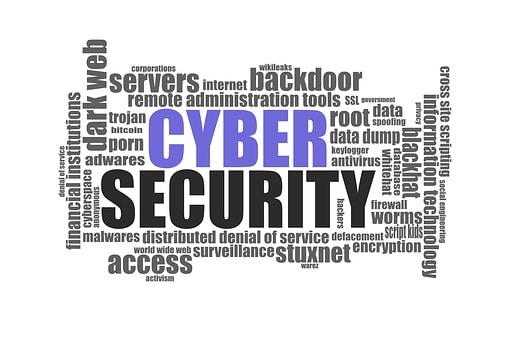Small businesses may think cyber security is only a concern for big companies with advanced IT systems. However, the truth is that even a small business can easily become a target of data breaches, making strong security measures essential to protect customer information and sensitive company data. Here are six tips you can implement today to improve your small business’s cybersecurity.

1. Keep Your Software and Systems Up to Date
Keep all software and systems up-to-date with the latest security patches, including any operating system your business uses and third-party applications or plugins you may have implemented on devices and websites. Besides patching any security vulnerabilities, regular updates can help improve your systems’ overall performance and reliability.
2. Train Your Employee
Basic employee training should include proper password usage and recognizing malicious emails or websites that could infect the network with malware. Remember to develop and implement a cyber security policy that outlines guidelines and procedures employees should follow when handling sensitive information or using company devices. Additionally, regular refresher courses should be held to remind employees of their role in protecting the company from cyber-attacks.
In addition to teaching best practices, employees should be aware of the consequences of failing to adhere to security policies. From stricter monitoring by IT personnel to disciplinary action in extreme cases, your staff must understand the importance of keeping up with these measures.
3. Invest in Cybersecurity Services
Investing in cybersecurity services can help protect your data and systems from cybersecurity threats and provide you with ongoing monitoring and support. Cybersecurity services such as managed firewall protection, malware scanning, email filtering, and more can help to keep your business safe from online attacks. When selecting a provider, find one who understands the specific needs of small businesses and has experience in providing comprehensive security services.
4. Perform Regular Backups
Creating regular backups of all valuable data and storing them securely offsite or in the cloud is crucial to ensure that your business remains operational and data loss is minimized. However, backups alone are not enough. To ensure proper functionality and prompt accessibility during a security breach, you must conduct routine testing of your backups.
5. Implement Multi-Factor Authentication
Multi-factor authentication requires users to provide additional verification forms beyond just a username and password when accessing sensitive information or company devices. Popular multi-factor authentication methods include biometric recognition, one-time passwords, and physical tokens. For example, if a hacker manages to access one of your employee’s passwords, they still need to pass through the additional authentication factors before accessing your systems and data.
6. Encrypt Important Information
By encrypting information such as customer records, financial data, and intellectual property, businesses can ensure that these assets remain secure even if accessed by unauthorized personnel. When encrypting data, using robust encryption algorithms and unique passwords or keys for each file or system is essential. Store encryption keys separately in a secure location and ensure they are not accessible to unauthorized personnel.
Given the increase in cybercrime, businesses must safeguard their data and systems from online threats. They can do this by implementing strong cybersecurity measures, such as regular updates, investing in cybersecurity services, implementing multi-factor authentication, performing regular backups, and encrypting important information, which can help to keep your business safe from cyber-attacks. By taking these precautions, businesses can avoid costly data breaches and the potential harm they may cause.
